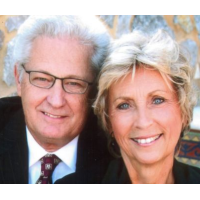Hobby Lobby Ruling Puts Rights of Employers above Rights of Employees
 Hobby Lobby founders David and Barbara Green (photo: Hobby Lobby/AP)
Hobby Lobby founders David and Barbara Green (photo: Hobby Lobby/AP)
The words “Hobby Lobby” have already become infamous in legal circles, now that the U.S. Supreme Court’s conservative wing has again asserted the supremacy of corporate rights, this time over those of working Americans.
The decision in Burwell v. Hobby Lobby (pdf) follows in the footsteps of the Citizens United ruling four years ago, in which the court elevated the importance of corporation’s spending unlimited resources in elections.
This time, however, the rightwing heralded the rights of businesses to deny providing birth control to workers through company insurance plans.
Although the 5-4 ruling was rooted in law protecting religious freedom, Hobby Lobby could very well go down as a landmark case that reinforces the political and economic notion that employer rights trump those of others.
“The court’s conservative majority will bend over backwards to find that corporations can make every claim that individuals can bring,” Doug Kendall, executive director of the Constitutional Accountability Center, a liberal group opposed to the court’s pro-business bias, told Reuters.
Justice Ruth Bader Ginsburg, who wrote the dissenting opinion, warned that the ruling was a “decision of startling breadth” which could lead to employees losing out on other rights, such as vaccinations and certain medications if their employers object. “Suppose an employer’s sincerely held religious belief is offended by health coverage of…paying the minimum wage or according women equal pay for substantially similar work?” she asked.
Ginsburg also argued that the ruling opened the way for secular companies, not just those holding strong religious views, to assert their opinions over those of their rank-and-file.
Defenders of gay rights said the decision could even be used to deny equal protection to homosexuals.
Justice Samuel Alito, who authored the majority opinion, denied the broad implications of the ruling, saying it “seems unlikely” that publicly traded companies would ever try to deny insurance coverage to workers on religious grounds.
Other conservatives seconded that notion. Ilya Shapiro, a legal scholar at the libertarian Cato Institute, claimed the ruling was merely “technical” and “statutory.”
The case grew out of lawsuits filed by two family-owned companies, Hobby Lobby Stores Ltd. and Conestoga Wood Specialties Corp., which sought an exemption to the 2010 Affordable Care Act’s provision requiring employers to provide insurance coverage that includes birth control for employees. The plaintiffs successfully argued that federal law (the Religious Freedom Restoration Act of 1993) permitted them to deny such coverage.
-Noel Brinkerhoff
To Learn More:
U.S. Birth Control Ruling Fuels Battle over Corporate Rights (by Lawrence Hurley, Reuters)
Supreme Court Sides with Employers over Birth Control Mandate (by Robert Barnes, Washington Post)
The Bait-And-Switch Behind Today’s Hobby Lobby Decision (by Ian Millhiser, Think Progress)
10 Blistering Highlights from Justice Ruth Bader Ginsburg's Hobby Lobby Dissent (by Janet Allon, AlterNet)
Burwell v. Hobby Lobby Stores (U.S. Supreme Court) (pdf)
- Top Stories
- Unusual News
- Where is the Money Going?
- Controversies
- U.S. and the World
- Appointments and Resignations
- Latest News
- What If China Invaded the United States?
- Donald Trump Has a Mental Health Problem and It Has a Name
- Trump Goes on Renaming Frenzy
- Trump Deports JD Vance and His Wife
- Trump Offers to Return Alaska to Russia






Comments